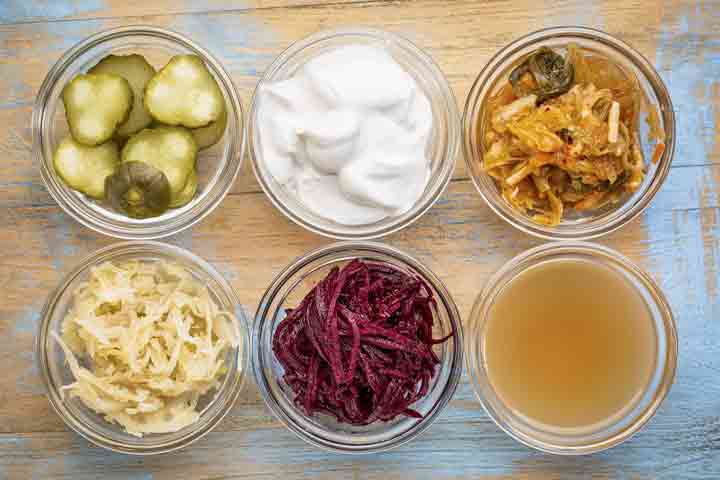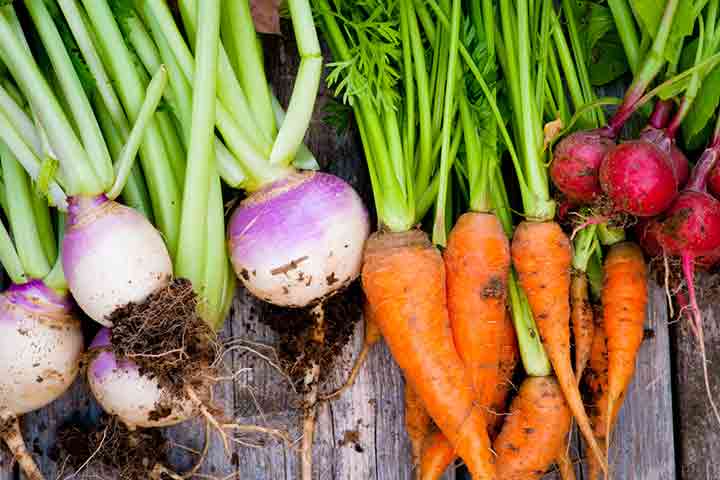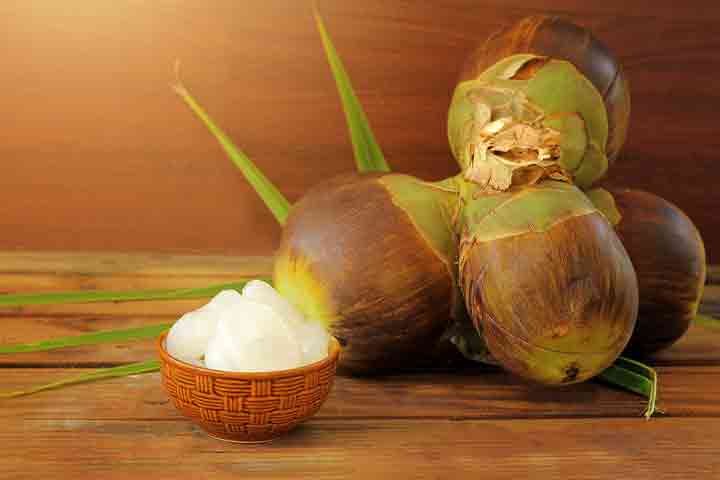Prebiotics for babies may help promote the growth of healthy gut bacteria. At the 6th Meeting of the International Scientific Association of Probiotics and Prebiotics (ISAPP) in 2008, dietary prebiotics was defined as “a selectively fermented ingredient that results in specific changes in the composition and/or activity of the gastrointestinal microbiota, thus conferring benefit(s) upon host health” (1).
Thus, prebiotics are different from probiotics and have different functions, which is elaborated in this article. This post also discusses whether babies require prebiotics and their benefits, safety, and food sources.
Difference Between Prebiotics And Probiotics For Babies
Prebiotics are often confused with probiotics. There are differences in them though, that can be best understood through their definitions provided by the American Academy of Pediatrics (2).
Probiotics are food supplements that contain viable/live good bacteria that cause alterations in the bacterial colonies of the host’s intestines. These bacteria keep the gut healthy.
Prebiotics are non-digestible food ingredients that selectively stimulate the favorable growth and activity of one or more probiotic bacteria present in the gut.
Therefore, probiotics are food matter that provide the body with good bacteria, while prebiotics work as ‘food’ for the gut bacteria itself. Healthy gut flora leads to their adequate population, which in turn keeps the digestive system functioning well.
Are Prebiotics Safe For Babies?
According to the American Academy of Pediatrics (AAP), prebiotics added to infant formula do not appear to be harmful to healthy infants, but there is currently not enough evidence to support the routine use of prebiotics in formula.
Do Babies Need Prebiotics?
It is not entirely known if babies need prebiotics. If your baby is fed on breast milk, then they can safely get the prebiotics from it. If your baby is on a formula diet, then you will have to speak to your doctor about introducing a prebiotic infant formula since standard infant formula may contain little or no prebiotics.
A study noted that babies who were fed prebiotic infant formula had gut microbiotaiXThe microorganisms present in the GI tract that aid in different body functions. similar to breastfed infants and showed better stool consistency (3). However, it is not known if prebiotic infant formula-fed infants have an advantage over standard infant formula-fed babies in the long term. Speak to your doctor about the pros and cons of prebiotic infant formula for your baby.
What Are Different Types Of Prebiotics?
There are several types of prebiotics. The majority of the prebiotics are a subset of carbohydrate group called oligosaccharide. The following are the different variations of oligosaccharides that work as prebiotics (1) (4).
- Galactooligosaccharides: It comes from the sugar called galactose, which is commonly found in milk, including human milk, and milk products like yogurt, etc.
- Fructans: This category consists of inulin and fructo-oligosaccharide. Inulin is generally found in root vegetables. Fructose is found in several fruits and vegetables.
- Starch and glucose-derived oligosaccharides: These often result from the breakdown of large molecules of starch and glucose. Starch is commonly found in grains, while glucose is found in a variety of fruits and vegetables.
What Are The Benefits Of Prebiotics For Babies?
Prebiotics are considered functional foods because they provide health benefits that go beyond basic nutrition (5).
A few not very conclusive studies, prove the efficacy of prebiotics in managing the following conditions in babies:
- Strengthening the immune system
- Atopic eczema
- Recurrent wheezing
- Allergic urticariaiXAlso known as hives, characterized by raised, itchy bumps on the skin due to an allergic reaction.
- Allergic dermatitisiXAn inflammation of the skin accompanied by itchiness and dryness commonly triggered by an allergen.
- Diarrhea
- Chronic ulcerative colitisiXAn autoimmune disorder that causes sores, bleeding, and diarrhea in the colon and rectum.
Enriching the baby’s formula with prebiotics is also said to lower the pH of stool, stimulate bowel movements, and aid in improving the consistency of stool (3). Prebiotics might lead to an overall improvement in the population of the gut microbiota.
Food Sources That Contain Prebiotics For Babies
Although they are available as supplements, prebiotics occur naturally in several common foods. The following are some natural sources of prebiotics for babies (2) (4) (5).
- Human milk and prebiotic infant formula – only source of prebiotics for babies younger than six months
- Chicory root
- Yogurt
- Buttermilk
- Palm fruit
- Jackfruit
- Rambutan
- Young coconut
- Okra
- Onion
- Artichoke
- Asparagus
- Banana
- Garlic
- Soybean
- Beans
- Cereals
Prebiotics are substances present in food that promote the growth of good bacteria in the gut. The presence of natural prebiotics in human milk indicates the need to introduce supplemental prebiotics in the baby’s food (2). Many foods, such as buttermilk, jackfruit, and tender coconut, contain prebiotics. Prebiotics for babies may help improve their gut health, digestion, immunity, and resistance to allergies. A balanced diet of solids after six months and continued breastfeeding can provide infants with the required prebiotics. However, you should check with a pediatrician if you wish to add prebiotic supplements to your baby’s diet.
Key Pointers
- If your baby is fed breast milk, they can safely get prebiotics from it.
- Galactooligosaccharides, fructans, starch, and glucose-derived oligosaccharides are some prebiotics that babies can get from foods.
- Prebiotics can strengthen a baby’s immunity and confer many more benefits, such as curing diarrhea, atopic eczema, and allergic dermatitis.
Are you wondering if you should give probiotics to your child? Learn the pros and cons of giving probiotics to your little one with the following video and make an informed decision.















